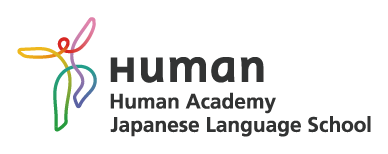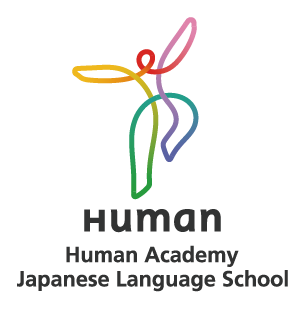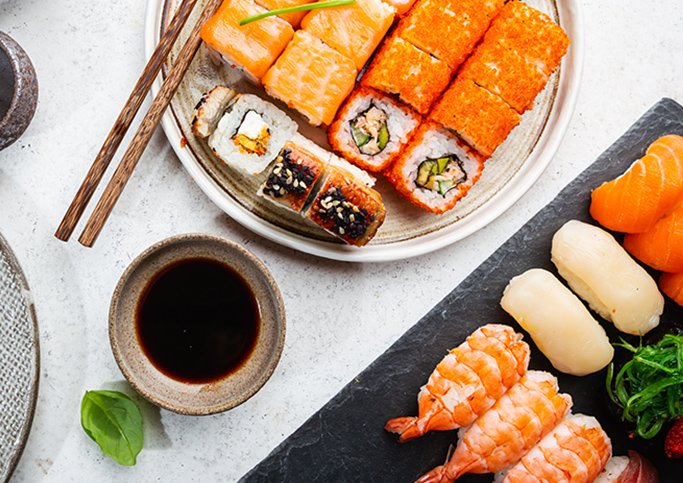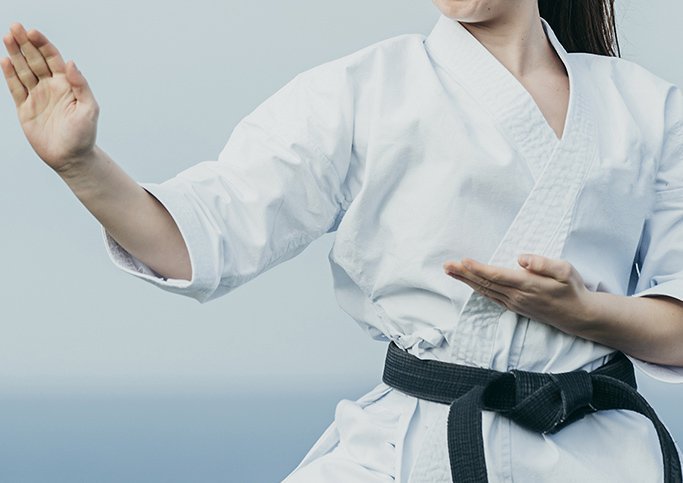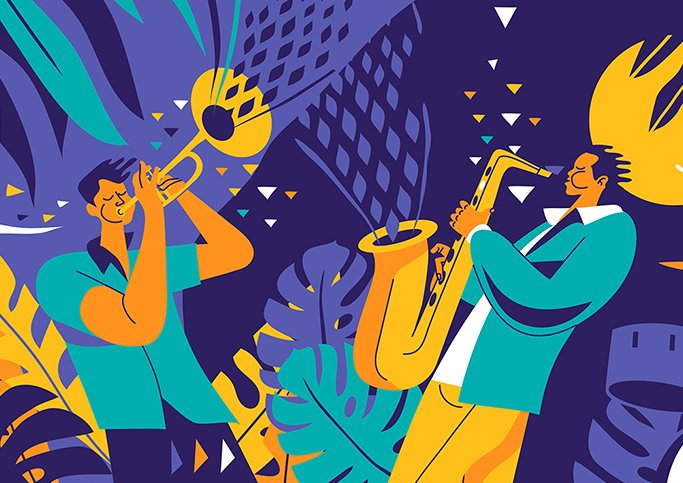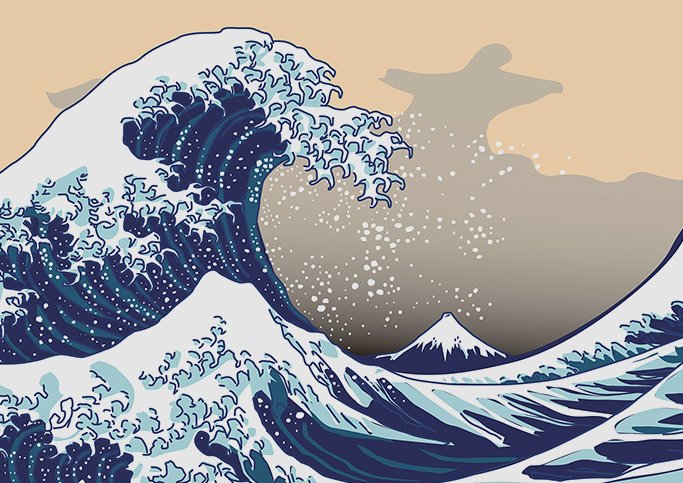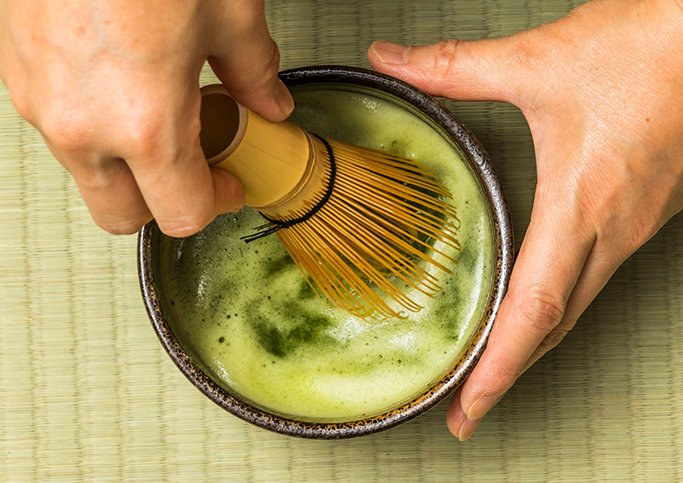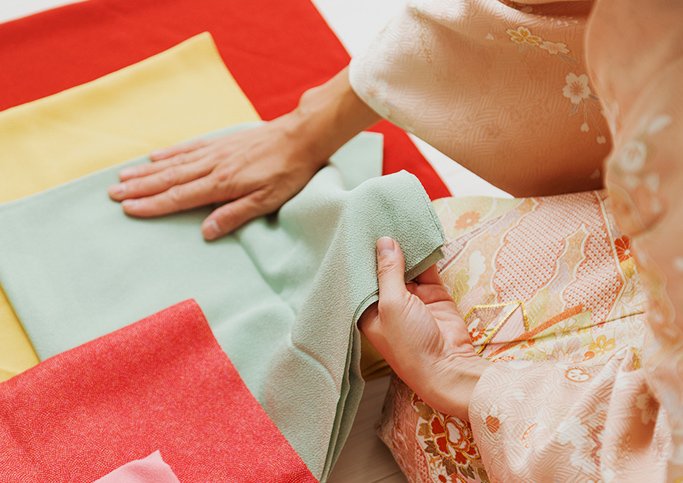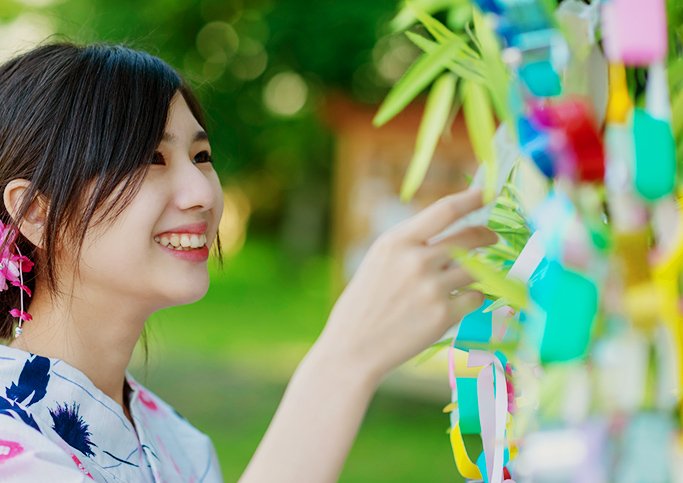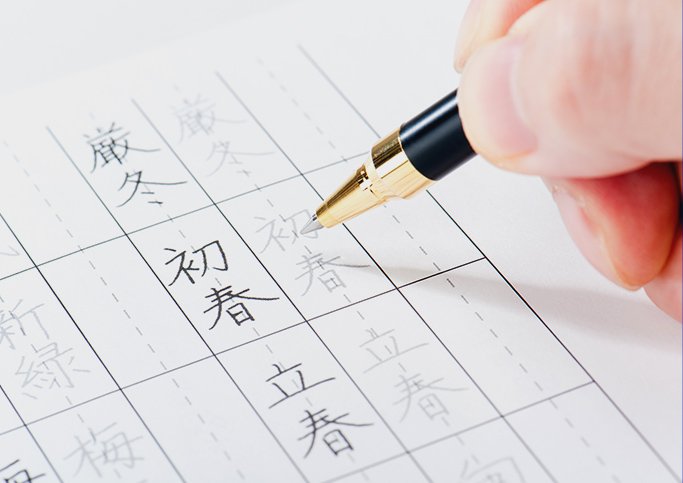
myself
watachi/ watakushi/ boku/ ore… Let's express the first-person "I" in Japanese
6/14/2021
“I,” which is “私” in Japanese, is a first-person word to describe oneself. In Japanese, the first-person word changes as the speaker or the scene changes. Both men and women use the first-person expression in different ways. Let's express "I" in Japanese in various scenes of everyday life.
1. わたし(watashi)
“わたし” (watashi) is the most common first person expression used by Japanese people. It is written in kanji as “私.” Both men and women can use “わたし” (watashi). Whether you are talking to a superior or a child, you can refer to yourself as “わたし” (watashi).
Example
わたしは、あなたが大好きです。
Watashi wa, anata ga daisuki desu.
I love you.
Example
あなたは、わたしの友達です。
Anata wa watashi no tomodachi desu.
You are my friend.
Example
これは、わたしの財布です。
Kore wa, watashi no saifu desu.
This is my wallet.
The word “あたし” (atashi) is a casual expression of “わたし” (watashi). Pronouncing it as “わたし” (watashi) rather than “あたし” (atashi) will give a better impression to the other person.
2 . わたくし(watakushi)
The usage of “わたくし” (watakushi) is similar to that of “わたし” (watashi). The word “わたくし” (watakushi) is written in the same way as "私" in kanji. “わたくし” (watakushi) is a more polite way of saying “わたし” (watashi). It is often used when talking with older people or in business conversations.
Example
わたくしは、山田まり子です。
Watakushi wa, Yamada Mariko desu.
I'm Mariko Yamada.
Example
こちらは、わたくしの名刺でございます。
Kochira wa ,watakushi no meishi de gozaimasu.
This is my business card.
Example
申し訳ありません、わたくしが間違えました。
Mōshiwakearimasen,watakushi ga, machigae mashita.
I'm sorry. I made a mistake.
The word “あたくし” (atakushi) is a broken form of “わたし” (watashi). Pronouncing it as “わたくし” (watakushi) rather than “あたくし” (atakushi) gives a more general and elegant impression to the other person.
3. ぼく(boku)
“ぼく” (boku) is a first-person expression used mainly by men. Women rarely use “ぼく” (boku). Men, both children and adults, of any age, can use “ぼく” (boku). “ぼく” (boku) is written in kanji as “僕.”
Example
ぼくの夢は、医者になることです。
Boku no yume wa, isha ni naru kotodesu.
My dream is to be a doctor.
Example
ぼくのパパとママは、家にいます。
Boku no papa to mama wa, ie ni imasu.
My dad and mom are at home.
Example
ぼくの電話番号は、090-1234-1111です。
Boku no denwabangō wa, 090-1234-1111 desu.
My phone number is 090-1234-1111.
4. おれ(ore)
The word “おれ” (ore) is mainly used by men. Women seldom use “おれ” (ore). Since “おれ” (ore) is not a polite first person expression, it is often used in conversations with close family and friends. It is best not to use it when talking to older people, your boss, or in business situations. “おれ” (ore) is written in kanji as “俺.”
Example
おれは、大阪に住んでいる。
Ore wa ,Oosaka ni sunde iru.
I live in Osaka.
Example
おれは、明日病院にいく。
Ore wa, ashita byōin ni iku.
I will go to the hospital tomorrow.
Example
おれは、伊藤さんを愛している。
Ore wa, Itō-san wo aishite iru.
I love Mrs. Ito.
5. おれさま(ore-sama)
The word “おれさま” (ore-sama) is a combination of “俺” (おれ) and “様” (さま), and is used to convey a speaker's domineering attitude. “おれさま” (ore-sama) is often used by men when they want to make a strong impression on those around them. However, it is not appropriate to refer to oneself as “○○様” and should not be used in everyday conversation.
Example
おれさまの言うことが、聞けないのか!
Ore-sama no iu koto ga, kikenai no ka!
Can't you hear me!
Example
おれさまに逆らうとは、いい度胸だ。
Ore-sama ni sakarau to wa ,ī dokyō da.
You've got a lot of nerve to disobey me.
Example
おれさまが、一番偉いんだぞ!
Ore-sama ga, ichiban erai nda zo!
I'm the greatest!
[日本のことが気になる?一緒に日本語を学びませんか?]
6. わし(washi)
The word “わし” (washi) is an abbreviation of “私” (watakusi). It is used in some parts of Japan and by older men. In old Japanese movies, people often refer to themselves as “わし” (washi). It is not used in business. The kanji is written as “儂.”
Example
わしは、80歳になった。
Washi wa, 80-sai ni natta.
I turned 80 years old.
Example
わしの財産は、全部おまえにやる。
Washi no zaisan wa, zenbu omae ni yaru.
I'll give you all my property.
Example
これは、わしのめがねじゃないか?
Kore wa, washi no megane janai ka?
Aren’t these my glasses?
7. あたい(atai)
“あたい” (atai) is a variation of the pronunciation of “わたし” (watashi). It changed from “わたし” (watashi) to “あたし” (atasi) to “あたい” (atai). A long time ago, women in downtown Tokyo often used it. Nowadays, it is sometimes used by characters in rakugo (traditional comic storytelling), historical dramas, and manga. Modern women do not use it.
Example
あんたのせいで、あたいの人生はめちゃくちゃだよ。
Anta no sei de, atai no jinsei wa mechakucha dayo.
Because of you, my life is messed up.
Example
この人は、あたいの父ちゃんだよ。
Kono hito wa, atai no tōchan dayo.
This person is my father.
Example
あたいは、東京からきたのさ。
Atai wa, Tōkyō kara kita nosa.
I'm from Tokyo.
8. じぶん(jibun)
“じぶん” (jibun) is a way of referring to oneself. It is an expression used by people such as athletes, police officers, and self-defense officials, to refer to themselves in a humble way. The term “じぶん” (jibun) is mainly used by men. It is not used in business situations.
Example
じぶんは、警察官です。
Jibun wa, keisatsukan desu.
I'm a police officer.
Example
じぶんが、犯人を逮捕しました。
Jibun ga, han'nin wo taiho shimashita.
I arrested the criminal.
Example
じぶんは、努力が足りませんでした。
Jibun wa ,doryoku ga tarimasen deshita.
I didn't have enough effort.
In the Kansai area of Japan, the expression “じぶん” (jibun) is used to refer to the other person. If the other person is from the Kansai region, listen carefully.
9. おいら(oira)
The word “おいら” (oira) is the plural of “俺” (ore). It seems to have changed from “俺等” (orera) to “おいら” (oira). The word “おいら” (oira) was originally used to refer to multiple people, but it is actually used to refer to one person. The term “おいら” (oira) was originally a male dialect in the Kanto area. Nowadays, it is used by characters in manga, or by celebrities on social networking sites. However, “おいら” (oira) is rarely used in daily conversation, and even in business situations.
Example
おいらは、車を2台持っている。
Oira wa, kuruma wo nidai motte iru.
I have two cars.
Example
おいらの趣味は、釣りだ。
Oira no shumi wa, tsuri da.
My hobby is fishing.
Example
おいらの名前は、ひろしって言うんだ。
Oira no namae wa, Hiroshi tte iunda.
My name is Hiroshi.
10. うち(uchi)
“うち” (uchi) is a dialect word used by women in the Kansai region. “うち” (uchi) is used for family and friends. It is not used in business situations.
Example
うち、あんたのこと好きやねん。
Uchi, anta no koto sukiyanen.
I like you.
Example
うちは、お好み焼きが食べたい。
Uchi wa, oskonomiyaki ga tabetai.
I want to eat Okonomiyaki.
Example
これは、うちの写真です。
Kore wa, uchi no shashin desu.
This is my photo.
In Japanese, there are a number of ways to express "I." Let's practice male and female ways of saying it, and polite and casual ways of saying it. In this article, we introduced ways to express "I" in Japanese. Now, do you know that there are many ways to express "you" and "we" as well?
If you are interested in the Japanese language, why don't you sign up for a free membership to Human Academy Japanese Language School Plus. You can experience practical Japanese lessons by experienced teachers for free.
CATEGORIES
FEATURED TAGS
RECOMMENDATION
-
 報BUSINESS TERMS
報BUSINESS TERMSWhat is ”Ho-Ren-So”, one of the basic manners when working in Japan?
10/30/2020
-
 伝WORDS & GRAMMAR
伝WORDS & GRAMMARWhat is easy Japanese?
10/30/2020
-
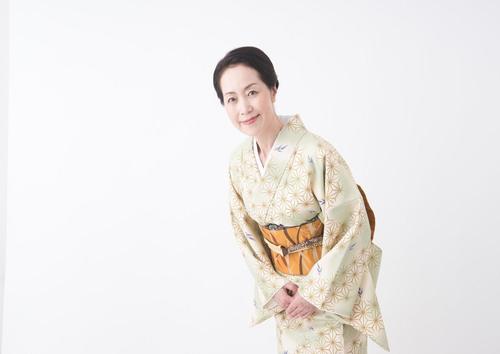 礼MANNERS
礼MANNERSJapanese greeting customs and origins. What are the greetings from other countries?
10/30/2020
-
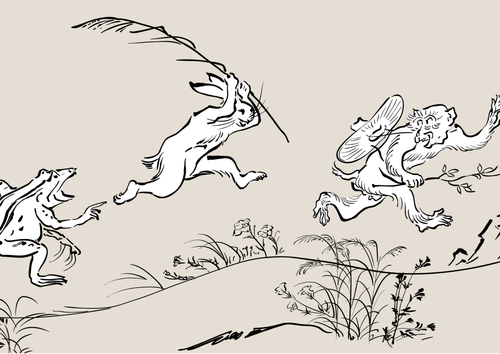 戯COMIC & GAME
戯COMIC & GAMEThe roots of animation and manga? Introducing bird and beast caricatures
10/30/2020
-
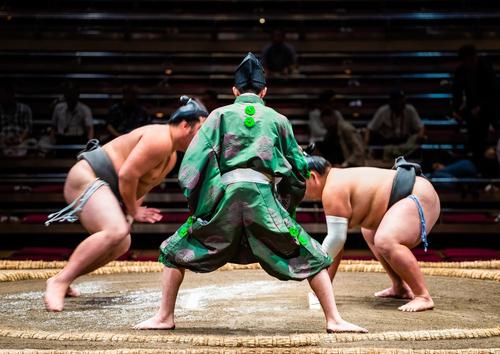 戦SPORTS
戦SPORTSThe history of sumo goes back to the mythical world! ?? Transition from myth to modern times
10/30/2020
LET’S PLAY
KARUTA!
Do you know the meaning of this...
NEXT...
FURTHER EXPLORATION
INTERESTED
IN JAPAN?
WHY DON’T YOU
LEARN JAPANESE WITH US?
START LEARNING
JAPANESE
WITH HUMAN ACADEMY!
ONE OF
THE MOST POPULAR
JAPANESE
LANGUAGE SCHOOLS
JAPANESE
LANGUAGE SCHOOL
OFFERING EXCELLENT
DETAILED LESSONS

ONLINE SCHOOL
- Learn with your classmates from all over the world
- Variety of Courses for All Needs
- FREE Trial Lesson available

TOKYO, OSAKA
- Offer the Best Curriculum for You
- Make New Japanese Learning Friends
- Many Opportunities to Practice Japanese
MAKE FURTHER
STEPS
WITH HUMAN ACADEMY!
ONE OF
THE MOST POPULAR
JAPANESE
LANGUAGE SCHOOLS
JAPANESE
LANGUAGE SCHOOL
PRODUCING MANY
JLPT N1 CERTIFIED
STUDENTS!

ONLINE SCHOOL
- Learn with your classmates from all over the world
- Variety of Courses for All Needs
- FREE Trial Lesson available

TOKYO, OSAKA
- Support Your Higher Goal of Japanese Learning
- Perfect Environment for Japanese Learners
- Learn with Your New Japanese Study Mates

